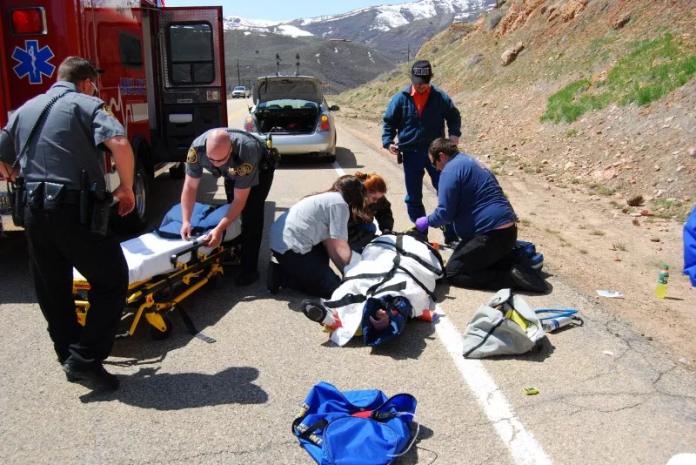
by Aaron Short, 2019
America’s roads are safe increasingly for only those who drive on them.
For the second year in a row, cyclist and pedestrian fatalities rose while the overall number of traffic deaths fell across the country, according to federal projections compiled by the National Highway Traffic Safety Administration.
The group’s preliminary finding shows that 36,750 people died in motor vehicle traffic crashes last year — a decline of about 1 percent from the 37,133 fatalities in 2017. But cyclist fatalities soared 10 percent and pedestrian deaths rose four percent last year, the NHTSA estimated. Motorist fatalities fell slightly.
The NHTSA said it was “too soon to speculate” on why pedestrians, motorcyclists, and cyclists are dying in greater numbers, but analysts have long explained the rising body count. New cars in the American market, for example, are becoming significantly safer and more reliable for drivers than older ones, the NHTSA has found, but those bigger cars tend to be safer only for people inside the vehicle.
Meanwhile, cities and suburbs are increasingly promoting walkable and bikeable neighborhoods and commutes, which often cause increases in pedestrian and bike travel even before streets have been properly redesigned for safety.
Too many roadways remained designed only for car drivers, so they lack protected or separated bike lanes or longer crossing signals for pedestrians. And thanks to smartphones, drivers are becoming more distracted than ever. There were 3,166 people killed from distracted driving in 2017 alone. Pedestrian deaths have been on a steady rise since 2009, when smartphones became ubiquitous.

Transportation safety advocates say cities also need to lower speed limits and increase traffic enforcement to save cyclist and pedestrian lives.
“We’ve got to make sure we’ve got safe places to walk, good crosswalks, and that we enforce traffic laws,” Jonathan Adkins, executive director with the Governors Highway Safety Association, told WTOP-FM. “When the public thinks they’re going to get a ticket, they slow down, they wear their seat belts, they don’t drive impaired.”
This article helps call attention to other stakeholders that would be influenced by better safety and a crackdown on unsafe drivers. It highlights the rise in both cyclist and pedestrian fatalities despite a decrease in fatal car accidents. All parties could benefit from an improvement in safety for cyclists because more visible cyclists are less likely to hit or be hit by pedestrians and cars.




